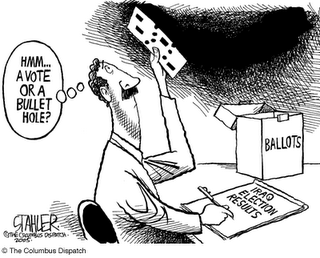 This Tuesday, May 2nd, we will go to the polls in the city election for Alexandria City Council and School Board. There are six seats on the City Council and nine seats on the School Board. The City Council is an ‘At-Large’ election and each voter has six votes. The School Board election is based on districts, with three seats per district. There are eleven candidates running for City Council and thirteen running for School Board. Alright, complicated enough?
This Tuesday, May 2nd, we will go to the polls in the city election for Alexandria City Council and School Board. There are six seats on the City Council and nine seats on the School Board. The City Council is an ‘At-Large’ election and each voter has six votes. The School Board election is based on districts, with three seats per district. There are eleven candidates running for City Council and thirteen running for School Board. Alright, complicated enough?In district B, the central area of the city, there are five candidates running for the three School Board seats. The candidates include: Yvonne Folkerts, Art Peabody, Elynn B. Simons, Peter H. Smeallie, and some other candidate that I am not sure is relevant anyway. The top three vote getters will win the seats in the School Board race.
Anyway, I've heard from several people now that some of the School Board candidates in the B race are out asking people to "bullet" vote. Bullet voting means that a voter chooses to vote for a single candidate, rather than using all three votes they're allowed to use in this election. These challengers will say that if you vote for more than one candidate, it dilutes the vote and will hurt their chances of getting elected. There is logic to this, but it might work against you and does not really speak to the values of true voting.
The bullet voting mathematical issue is based on the fact that there are more candidates than there are seats, and each voter has more than one vote. So if we use district B as an example, each voter is entitled to cast three votes for their representative to the Alexandria School Board, but is it wise to exercise that right or should one cast only one vote, which is known as a bullet vote? (Intermediate positions — casting two or three votes — are also possible of course.) Below presents both sides with an example of what the outcome could be.
Suppose you and 100 of your friends and neighbors agree that your first choice is Art and your second choice is Peter. And suppose, before your 100 ballots are counted, Art is in a tight race for third place, just 80 votes behind Peter. If the 100 of you bullet-vote for Art, your votes put him 20 votes ahead of Peter for third place, letting Art squeak in. But if the 100 of you dilute your support by voting for both of these fine candidates, Art remains 20 votes behind Peter, who then pushes Art out of third place. Net result: your second choice would be elected and your first choice defeated. Bullet voting is clearly the correct strategy as it elects your first choice in this case.
On the other hand, there is also an argument against bullet voting. To understand this argument we have to consider a candidate of medium popularity whom you definitely do not want elected. Let’s call her Claire, to pick a name at random. Now suppose Claire is 30 votes ahead of Art for fourth place before the 100 ballots from you and your friends are counted. And suppose that Art is way ahead (or way behind, it doesn’t matter which), so your 100 votes for Art won’t make any difference in his election. If you bullet-vote for Art, what  happens? Claire gets elected by finishing in fourth place! But if you each cast two votes — one for Peter and one for Art — then Peter finishes 20 votes ahead of Claire and squeaks in for a fourth-place victory! Net result of refusing to bullet-vote: your second choice would be elected and your last choice would be defeated. Bullet voting is clearly not the correct strategy!
happens? Claire gets elected by finishing in fourth place! But if you each cast two votes — one for Peter and one for Art — then Peter finishes 20 votes ahead of Claire and squeaks in for a fourth-place victory! Net result of refusing to bullet-vote: your second choice would be elected and your last choice would be defeated. Bullet voting is clearly not the correct strategy!